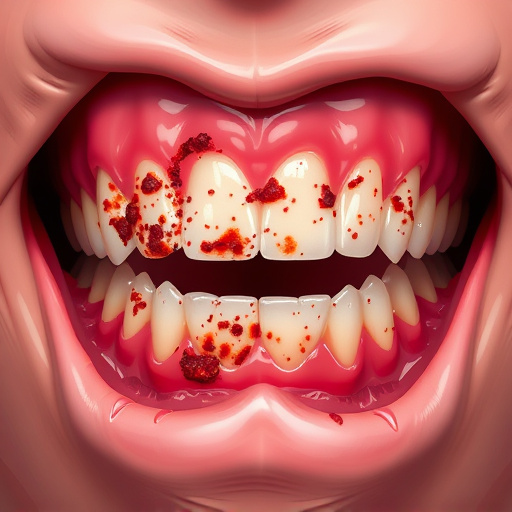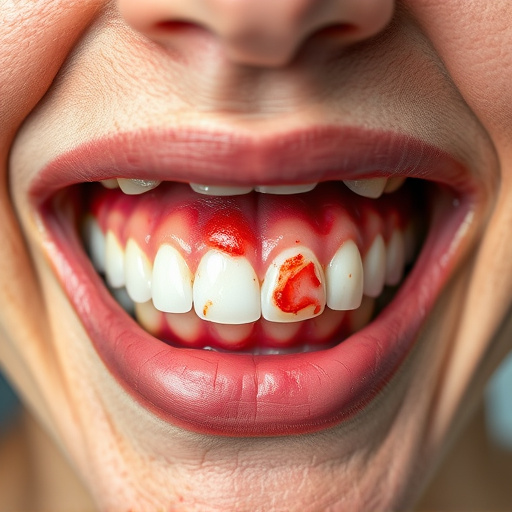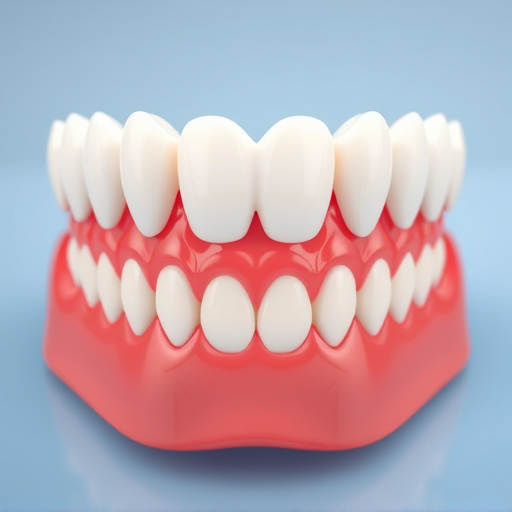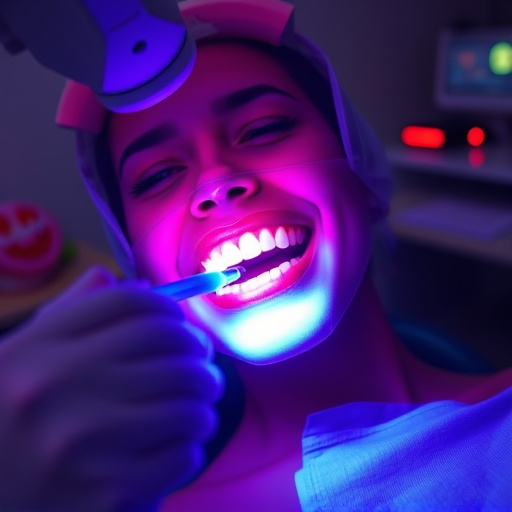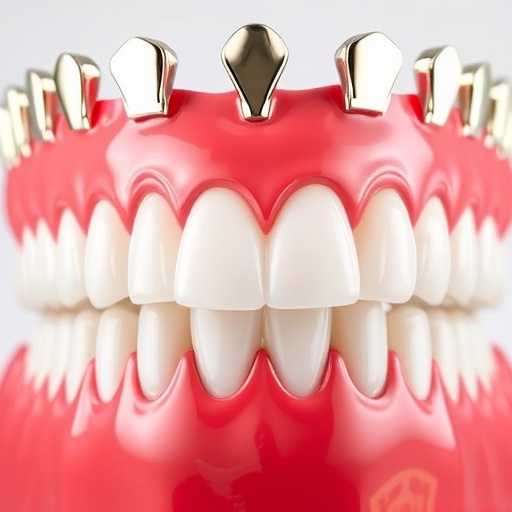After tooth extraction services, manage pain and swelling naturally with ice packs, follow dentist advice on medication, avoid strenuous activities, and maintain a soft diet. Ice therapy for 15-20 minutes every hour for the first 24 hours helps reduce inflammation. Maintain proper oral hygiene through teeth cleaning appointments to prevent infection. Avoid using straws to prevent dry socket, a common complication. Over-the-counter pain relievers offer temporary relief; prescription medications provide better analgesia. Regular dental exams and emergency care are crucial for optimal post-extraction oral health.
After a successful tooth extraction, proper post-care is essential for a swift recovery. This article guides you through the critical aspects to avoid, ensuring optimal healing after tooth extraction services. Discover effective strategies like using ice packs to combat swelling and exploring over-the-counter pain relievers instead of aspirin. Learn about dietary adjustments, focusing on soft foods, and which items to steer clear of. Additionally, maintain meticulous oral hygiene post-extraction and explore safe brushing and flossing techniques.
- Avoid Swelling and Pain Amplifiers
- – The role of ice packs in reducing swelling
- – Over-the-counter pain relievers as alternatives
Avoid Swelling and Pain Amplifiers
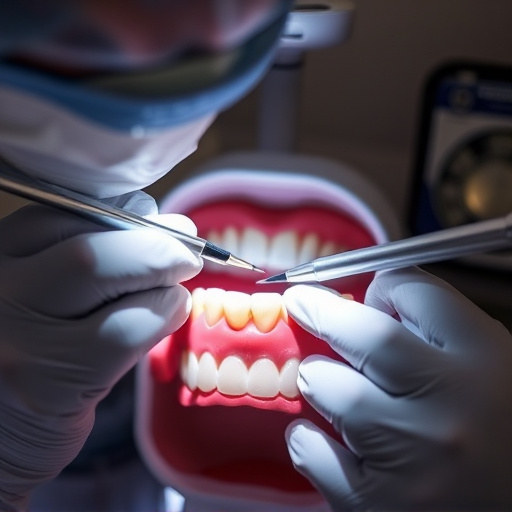
After tooth extraction services, one common yet avoidable pitfall is amplifying post-operative pain and swelling. It’s crucial to follow your dentist’s advice regarding medication. While over-the-counter pain relievers like ibuprofen or acetaminophen can help manage discomfort, using prescription painkillers unnecessarily can lead to prolonged inflammation. Applying ice packs as recommended by your dental professional is an effective way to reduce swelling naturally.
Avoiding general dentistry practices that may exacerbate these issues is key. Instead, focus on cosmetic dentistry solutions that prioritize comfort and healing. Remember, proper post-op care, including avoiding strenuous activities and maintaining a soft diet, is essential for successful tooth extractions.
– The role of ice packs in reducing swelling
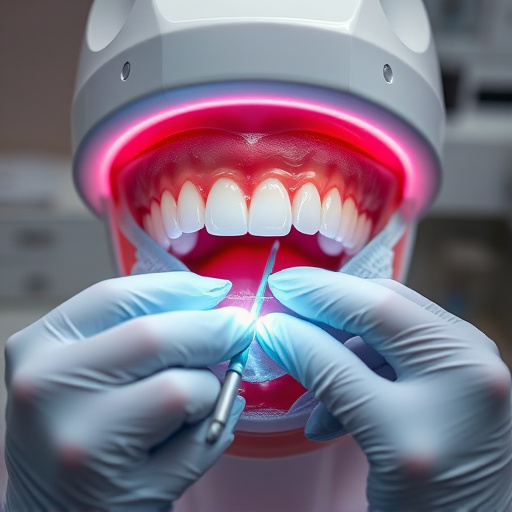
After tooth extraction services, one of the most effective ways to reduce swelling and discomfort is by applying ice packs. Ice can constrict blood vessels, which in turn minimizes bleeding and inflammation. It’s particularly important to use ice packs during the first 24 hours after the procedure to prevent excessive swelling. Simply wrap a few ice cubes or a frozen gel pack in a thin towel and apply it gently to the outside of your cheek near the extraction site. Apply the ice for 15-20 minutes, then remove it for the same amount of time before repeating.
While ice packs are crucial for immediate post-extraction care, maintaining proper oral hygiene is equally important. Following up with your general dentistry or dental implants specialist for scheduled teeth cleaning appointments ensures that your mouth heals correctly and reduces the risk of infection. Remember to avoid using a straw for drinking, as the suction can dislodge the blood clot that forms in the extraction site, leading to dry socket – a common complication that contributes to increased pain and swelling.
– Over-the-counter pain relievers as alternatives
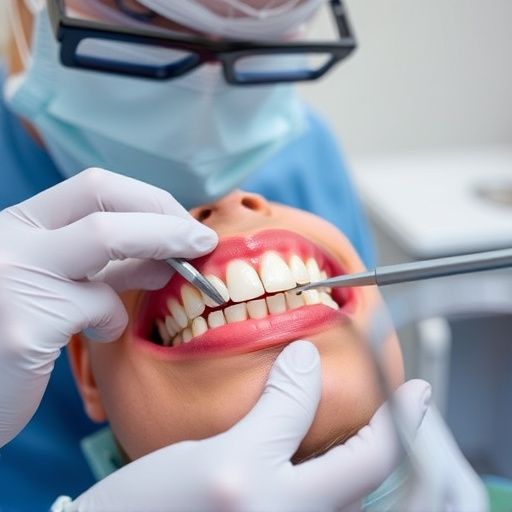
After undergoing tooth extraction services, it’s crucial to understand that while over-the-counter (OTC) pain relievers can offer temporary relief, they are not a substitute for the prescription medications often recommended by dental professionals. These OTC options, like ibuprofen or acetaminophen, can help manage mild to moderate pain, but their effectiveness may vary. Prescription painkillers, on the other hand, are tailored to your specific needs and can provide more robust analgesia, ensuring you’re comfortable during the healing process.
In addition to these pain management strategies, focusing on preventive dentistry is key. Regular routine oral exams and emergency dental care visits play a vital role in maintaining optimal oral health post-extraction. These appointments allow for early detection of any complications or issues, promoting swift intervention and enhancing your overall healing experience.
When undergoing tooth extraction services, it’s crucial to follow post-procedure guidelines carefully. Avoiding certain practices, like using swelling and pain amplifiers, is essential for a smoother recovery. Ice packs can significantly reduce swelling, while over-the-counter pain relievers offer effective alternatives. Remember that proper care after tooth extraction services plays a vital role in minimizing discomfort and ensuring a speedy healing process.






